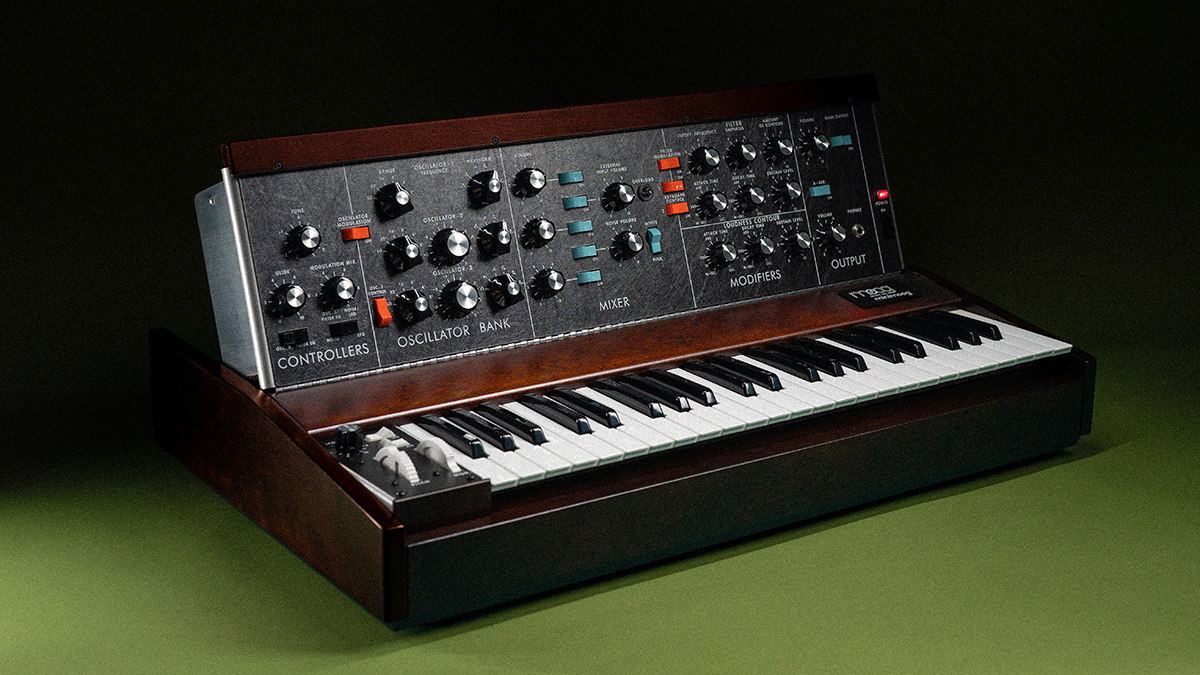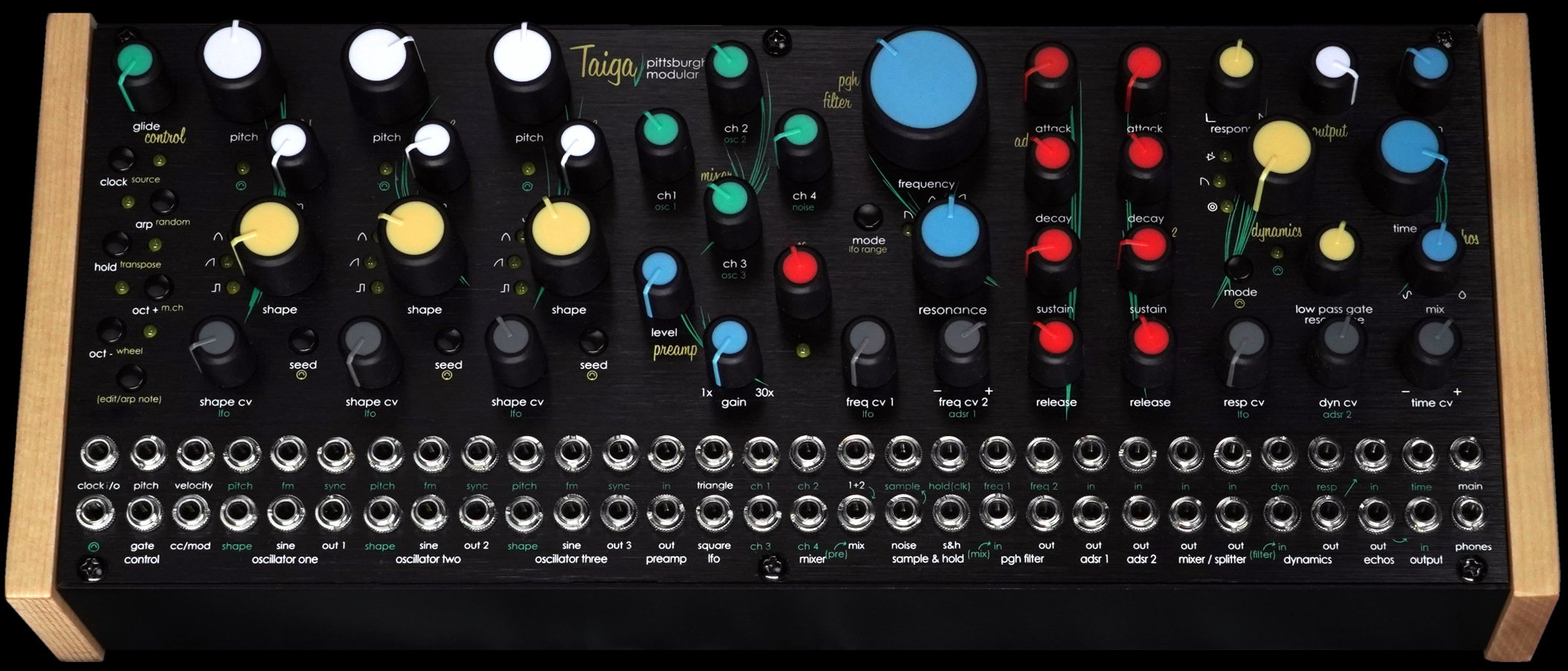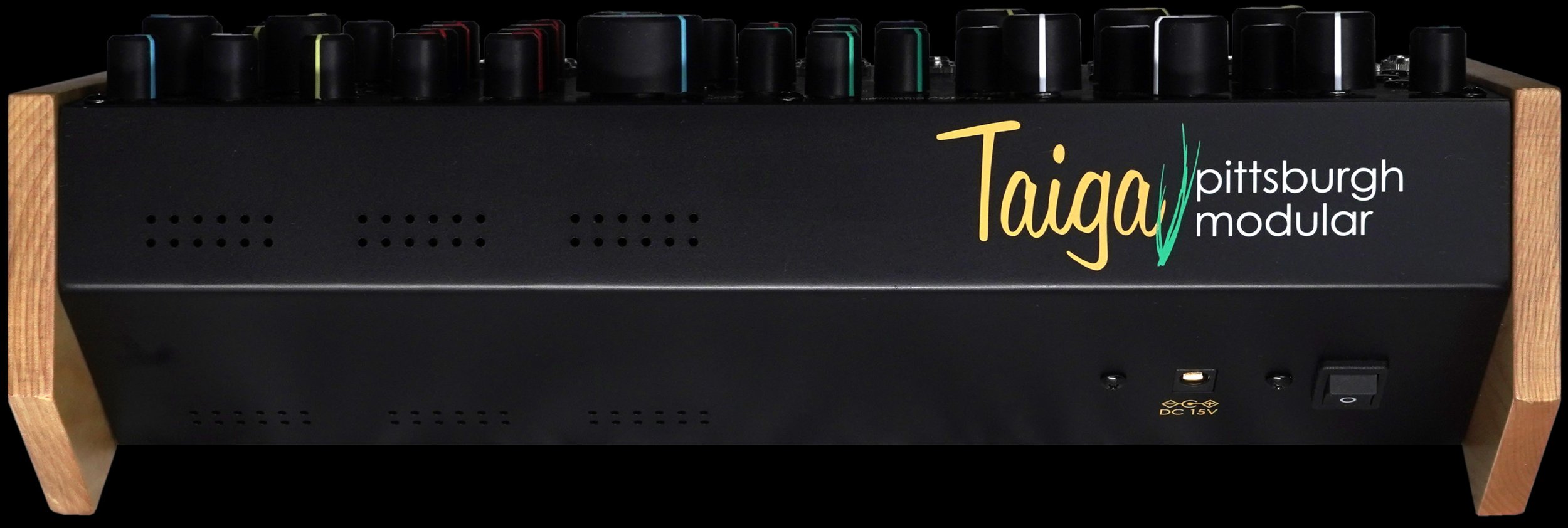Pittsburgh Modular's Taiga is a new semi-modular that "pushes the boundaries of analogue synthesis"
East Coast meets West Coast in the design of this three-oscillator synth, equipped with a six-stage wavefolder and Pittsburgh's unique Dynamics Controller
Want all the hottest music and gear news, reviews, deals, features and more, direct to your inbox? Sign up here.
You are now subscribed
Your newsletter sign-up was successful
Last week, Pittsburgh Modular shared a cryptic teaser on social media, hinting at the release of something called Taiga. This week, they've revealed the product, a new semi-modular paraphonic analogue synth that they're describing as a "complete, modern, modular instrument that allows us to explore beyond the boundaries of a traditional analogue synthesizer."
Taiga is a desktop synth that can function standalone in a wooden enclosure, or as part of a broader Eurorack setup as a 60hp module. As it's semi-modular, the instrument can be played out-of-the-box, without any patching, using a conventional subtractive signal flow. Alternatively, each of the synth's elements can be used independently and patched into an existing modular rig using the 60-point patchbay.
The synth's architecture begins with three analogue oscillators, identical other than for the range of their tuning knobs. These offer four core waveforms, sine, triangle, saw and square, and the user can utilize a six-stage cascading wavefolder to fold between these waveshapes, or introduce pulse-width modulation, with the Shape control. As such, the waveforms generated by Taiga stretch far beyond typical range of sounds associated with analogue synthesis.
Taiga is outfitted with a two-pole, 12db/octave analogue filter that's described by Pittsburgh as "tweaked to perfection" and capable of producing “a signature gummy and relaxed sound with no dead spots." The filter's equipped with a low pass, high pass and band pass and notch modes, with the option to combine these together in various configurations.

After the filter, the synth's signal hits the Dynamics section, which takes inspiration from the unique design found in Pittsburgh's Safari series of modules and houses a VCA, decay envelope and low-pass gate circuit that's capable of creating plucky, resonant sounds. As for modulation, Taiga features two envelopes and a dedicated LFO with two triangle and square outputs, while each of the oscillators can be used as LFOs themselves.
Taiga's Control panel offers MIDI-to-CV conversion and is capable of arpeggiation, sequencing and randomized voltage generation. Elsewhere in the synth, we've got an analogue bucket-brigade delay, mixer, noise generator and a preamp with soft clipping overdrive limiter circuit. Taiga comes with a MIDI dongle and ten patch cables, so you're able to begin patching and hook up the synth to a controller or DAW straight away.
Reactions across the synth community have been largely positive thus far, with Loopop describing the instrument as what might have been dreamed up if "Bob Moog and Don Buchla collaborated on a synth in the '70s". Jorb has dubbed the Taiga "the new king of semi-modular", while BoBeats claims it's his "new favourite semi-modular synth." Sarah Belle Reid observes that Taiga is "great at classic synth leads, bass lines, sequences, and paraphonic chords" and "excels at creating very dense, noisy textures and sound worlds."
Want all the hottest music and gear news, reviews, deals, features and more, direct to your inbox? Sign up here.
Taiga is available now for pre-order at $799/€799.
Watch Pittsburgh Modular's Richard Nicol and Michael Johnsen discuss the synth on a livestream below.
Find out more on Pittsburgh Modular's website.





I'm MusicRadar's Tech Editor, working across everything from product news and gear-focused features to artist interviews and tech tutorials. I love electronic music and I'm perpetually fascinated by the tools we use to make it.